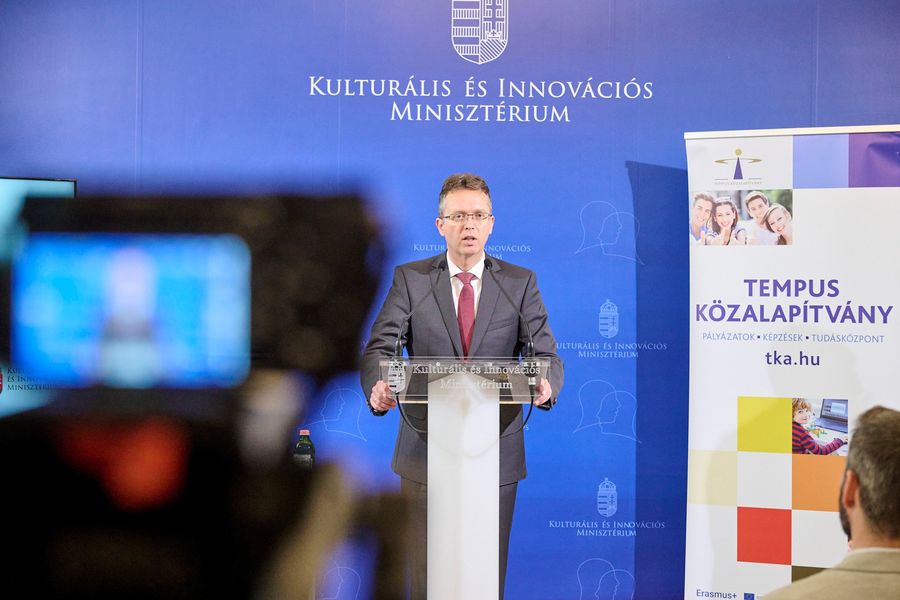HUF 10 billion for universities in the Pannonia Programme

In his speech, Balázs Hankó, State Secretary for Higher Education, Innovation, Vocational Training and Adult Education, stressed that they will not let the European Commission’s political games and double standards limit the opportunities of young people. “For us, Hungarian students come first, and we want them to be the most successful.” The programme will provide HUF 350-500,000 a month in scholarships, enabling around 8,000 students, lecturers and researchers to gain international experience at the world’s leading universities. 20 percent of the funding, or HUF 2 billion, will be used to send Hungarian students, lecturers and researchers to any of the 250 best universities in the world. He added that for the second year in a row, more than 120,000 persons have applied for admission to the renewed Hungarian higher education system, which shows the confidence of young people and the success of the model change. “We promise to continue to be there for them. The funding decisions have been made, the opportunities for students have been opened, I encourage everyone to apply for the Pannonia Programme, take advantage of it!” – the State Secretary concluded his speech.
Károly Czibere, President of the Board of Trustees of the Tempus Public Foundation (TPF), thanked the sector governance and the model-changing institutions for their cooperation in the development of the programme. Thanks to ongoing dialogue and shared reflection, the priorities and emphases that distinguish the Pannonia Programme from Erasmus have been established. It gives participants better opportunities: higher grants, more countries to choose from and guaranteed credit recognition help students study abroad. Following the decision of the TPF Board of Trustees on 7 March, all 21 model universities will receive support, and the universities have already been notified of the amount and conditions of the grants.
Zita Horváth, President of the Model Changing Section of the Hungarian Rectors’ Conference and Rector of the University of Miskolc, said that the Pannonia Programme is of great help in ensuring that universities’ relations with foreign institutions are not severed and that young people have access to opportunities despite the discriminatory decision of the European Commission, as the demand for mobility programmes has almost doubled in recent years. At the same time, she emphasised that they do not see the programme as a substitute for Erasmus, since “as a full member of the European Union, citizens of the model-changing universities, which account for more than two thirds of the Hungarian student population and two thirds of the research and teaching staff, would have every right to participate in these programmes, from which we are now excluded.” Following a successful application period, bilateral contracts are being finalised to enable young people, lecturers and researchers to benefit from the opportunities offered by the Pannonia Programme from autumn 2024.
Marcell Eszterhai, President of National Conference of Student Unions, (HÖOK), said that “the situation concerning the Erasmus and Horizon Programmes has reached a critical turning point”, and if they cannot continue in the autumn semester, it would be a serious disadvantage for Hungarian students. “Restricting Hungarian students’ access to education or European student services is not acceptable.” The president also underlined that they welcome the creation of the Pannonia Programme and consider it a great step forward that students’ studies abroad are fully recognised by the Hungarian universities through credit transfer.
Source: KIM, Image: Balázs Hankó, Facebook